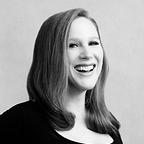Women of Wearables Presents “From the Investor’s Perspective: Women Investing in Women”
I joined this webinar today to hear and enjoyed hearing more about the Women of Wearables network in London. Here’s a few interesting takeaways that I gathered from the various speakers.
What do you look for in a founder?
Megan Reynolds: Crane VC looks for “disciples of industry” — we want founders obsessed with the industry they are in. We also care about productivity — the speed of learning and self-awareness that a founder possesses. We are drawn to founders that seek out the uncomfortable and put themselves in uncomfortable situations for the purpose of learning.
Katie Kim: We go after domain expertise, analytical rigor, technical experience, entrepreneurial flair, leadership skills, growth mindset and vision / specific to female founders — office hours for female founders and femtech founders
Yasmina: Know the ins and outs of their startup, understand your competitors, founders that are coachable, don’t need to take others advice but you do need to listen
Yvone: domain expertise, technical skills, commercialization mindset, current market demonstrates the importance of being adaptable, how much time do they spend with customers
Some companies CAN grow organically without external funding. What is your advice to these founders?
The Founder of Spanx, Sara Blakely was able to maintain organic growth by being extremely capital efficiency. You can see her masterclass in being a self-made entrepreneur here. Think strategically about what a VC can do for you? Can they support you in a way that enables you to cut existing costs or opt to not hire out for expertise?
Depending on the VC fund lifecycle, a VC may need you to return an exit quickly. If you want to run your business for the foreseeable future, VC funding might not be the right fit
COVID-19: Harder to raise money for startups? Will telehealth startups be positioned for success?
Devon Zimmerling: Undeniably COVID is a challenge for those raising money. Investors are on hold for the immediate coming weeks in terms of making new investment decisions. Once the lockdown is lifted, we will have more insight into the future. We saw opportunity arise for founders out of 2008 and 2009 so let’s keep that in mind.
For healthtech opportunities, as investors we need to be focused on how the world will change permanently rather than just short term changes based on individuals working remotely. For example, Blue Apron has been up 150% but is that really a permanent change in demand for meal kits that will remain into the future vs. a reaction to more individuals working from home for a bit?
On the hand, technology related to managing a remote workforce and working virtually like Zoom strike me as longer term changes.
Advice for being in VC or taking VC funding?
Be in VC? Live and breathe VC because you are always on. If you plan to take external money, you need to work very hard.
